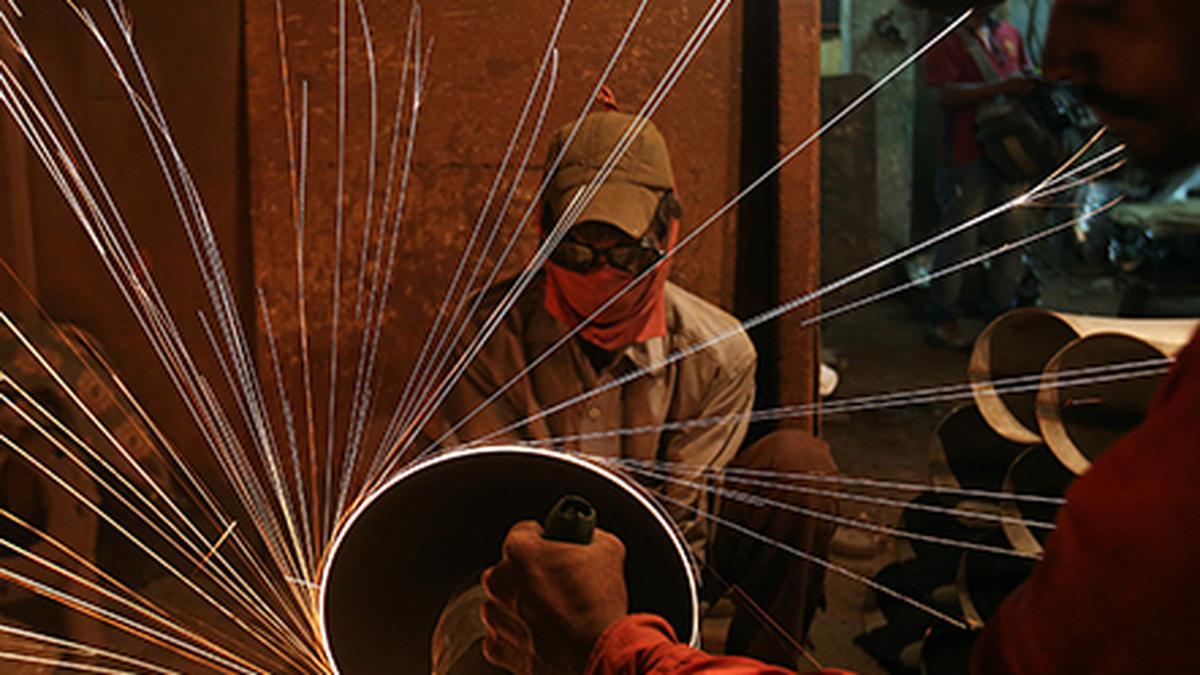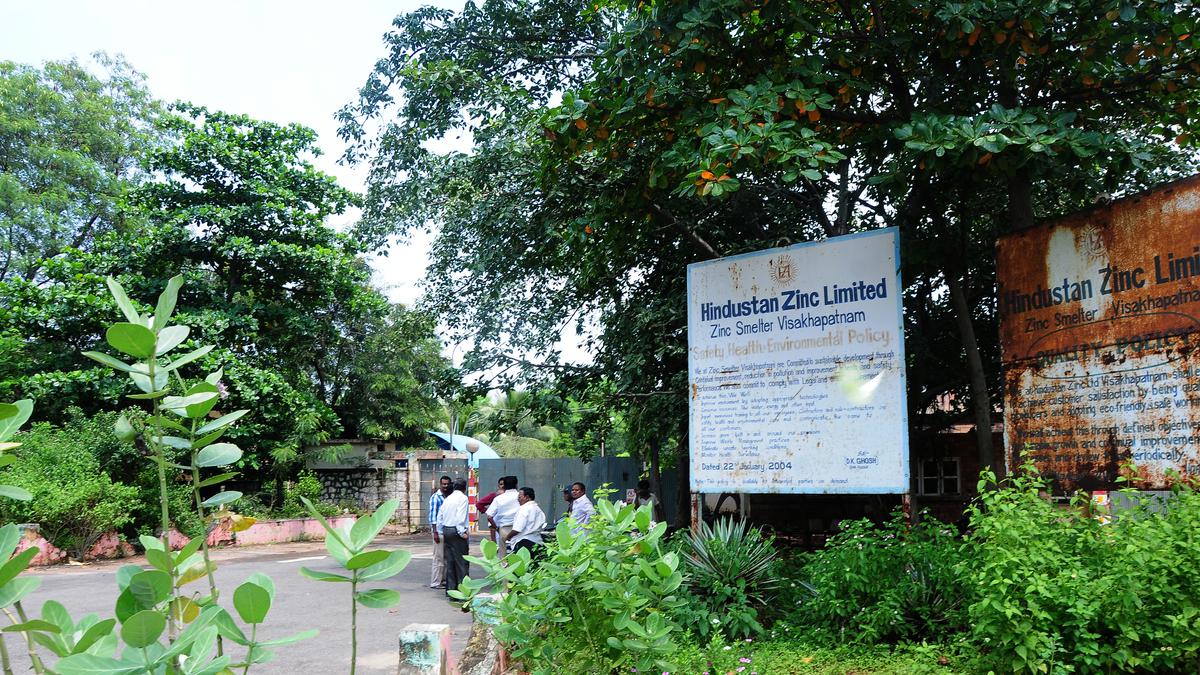A worker cuts metal inside a workshop manufacturing metal pipes in Mumbai. Photo used for representation purpose only.
| Photo Credit: Reuters
New orders and production levels surged to a three-month high in March even as input cost inflation for manufacturing firms slipped to the second-lowest mark in two-and-a-half years, as per the S&P Global India Manufacturing Purchasing Managers’ Index (PMI).
The seasonally adjusted PMI reading moved up from 55.3 in February to 56.4 in March, signalling the strongest improvement in operating conditions in 2023 so far. A reading of over 50 on the PMI indicates an uptick in economic activity.
The PMI average for the January to March 2023 period was 55.7, lower than the 56.3 in the previous quarter. New export orders grew at a faster pace in March than the previous month, but remained “slight and historically subdued”, S&P Global noted.
Resilient demand encouraged firms to rebuild their input inventories at “a sharp rate that was one of the strongest seen in over 18 years of data collection”, the firm said. This input buying streak was also spurred by lower costs, as close to 96% of firms surveyed by S&P Global reporting no change in cost burdens since February.
Despite the broader rise in orders and output, manufacturing firms’ outstanding business volumes grew only marginally at a pace that was the weakest in a year, compelling firms to desist from fresh hiring in March after 12 successive months of recording employment increases.
Moreover, the overall level of positive sentiment slipped to an eight-month low due to concerns surrounding competitiveness and general inflation, S&P Global found, even though firms expect new products, advertising and better customer relations to prop up sales in the coming year.
“Although manufacturers were upbeat towards future new orders, they somewhat doubted that inflation would continue to recede. Such worries restricted optimism towards output prospects,” explained Pollyanna De Lima, economics associate director at S&P Global Market Intelligence.
“Companies reported abundant capacity among themselves and their suppliers. Pending workloads expanded only marginally in March, hindering job creation,” Ms. De Lima pointed out.








